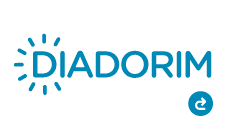Sulla rivista
Focus and Scope
Mission
The IJAEE mission is to promote a means of disseminating knowledge in the engineering education area.
Purpose
Provide to professionals working in the area of Engineering an electronic space for the dissemination of teaching jobs, research and extension in Brazil and other countries.
Target Audience
Undergraduate and graduate students, professors, researchers and professionals from different courses of engineering and related areas.
Types of papers accepted for publication in the jornal
The journal publishes thematic issues every six months containing scientific articles.
Peer Review Process
Procedures for Blind Peer Review:
1. All submissions are made online and must meet the criteria set out in the Author Guidelines.
2. After the text posting the author received a notice acknowledging receipt of it.
3. Following the publisher checks whether the text is in accordance with the rules of the Journal (such as summary, abstract, keywords, references and citations according to the ABNT, typos, verification of language, time it seeks to remove the text any author identification, to ensure peer review of the exemption). It is the responsibility of the authors present the texts without any identification of authorship.
4. Editors take note of the submission and indicate researchers and ad-hoc reviewers who investigate the contents of the submission of proposals to revise it.
5. All texts are evaluated by at least two appraisers and can be assigned a third reviewer if publishers a third evaluation deem necessary.
6. The editorial team of the IJAEE makes contact with the evaluators and provides the text in the journal system, creating a login and password for the evaluator to have access to it. Periodically the editorial team of the IJAEE checks the time and reminds evaluators on the evaluation.
7. When evaluators send their opinions, there is often the need for authors perform required patches, when the text is no longer rejected. Editors take note of the assessments and consider whether the text should or should not be rejected or still needs further evaluation. Typically, publishers tend to accept the suggestion of the evaluators, the relevance of the publication or not, when the opinions are detailed and point out the shortcomings or merits of the texts. All authors receive the content of the evaluations, with the text adopted or not. At no time prior to the publication, the authors or reviewers are knowing the identity of each.
8. After the completion of the modifications suggested by the reviewers, the authors should resubmit the corrected text to the Journal, marking the changes made.
9. When necessary the text is sent to the reviewers to check the changes made.
10. Editors check whether the text is in a position to be published, and if so, refer to the editorial team that provides the final review of the text and then send it to edition.
11. The approval of the submission does not guarantee immediate publication, as the journal should write each number considering diversification authored by institutions and the country.
12. In Evaluation Guidelines, the authors can meet the recommendations to Appraisers for review of submissions.
Include item on the “About the Journal”
To ensure the integrity of Blind Peer Review for journal submissions, every possible care will be taken to conceal the identities of authors and reviewers during the process. This requires two files to be sent to the Editor-In-Chief, according to templates, so that reviewers cannot identify the authors.
During article preparation, authors must take care not to be identified in the text.
Sponsors
The editorial team of the International Journal on Alive Engineering Education appreciates the support of the Research, Teaching and Extension Center for Alive Engineering (NIPEE EngVIVA), at the Federal University of Goiás (UFG). Research, Teaching and Extension Center for Alive Engineering (NIPEE EngVIVA), at the Federal University of Goiás (UFG)
Sources of Support
The editorial team of the International Journal on Alive Engineering Education appreciates the support of the Pro-rectory for Extension and Culture (PROEC/UFG).
Pró-Reitoria de Extensão e Cultura (PROEC/UFG)
Journal History
The International Journal on Alive Engineering Education (IJAEE) was created in 2013 from the Extension Project Electronic Journal Living Engineering registered in the Pro-rectory for Extension and Culture (PROEC/UFG) (SIEC 65632). The journal provides a new thematic space for publications of results of educational projects, research and extension in the area of Engineering in the Federal University of Goiás (UFG) and in Higher Education Institutions from Brazil and abroad. The publication was partly sponsored by the Tutorial Education Program (PET / CAPES) and also has the support of the Pro-rectory for Extension and Culture (PROEC / UFG), the Pro-Rectory of Graduate Studies (PROGRAD / UFG) and the Pro-rectory for Post-Graduate Studies and Research (PRRPG / UFG). The journal is currently managed by the the Research, Teaching and Extension Center for Alive Engineering (NIPEE EngVIVA), at the Federal University of Goiás (UFG).
Indexers


